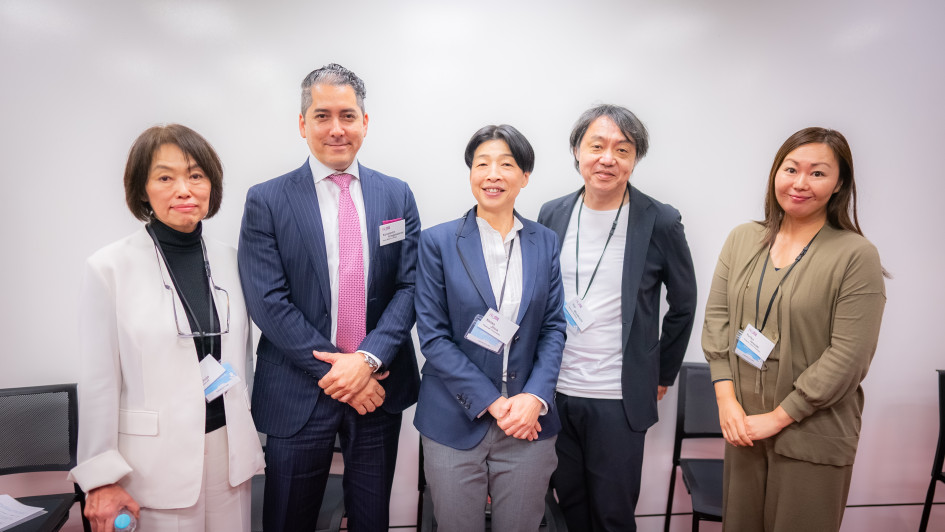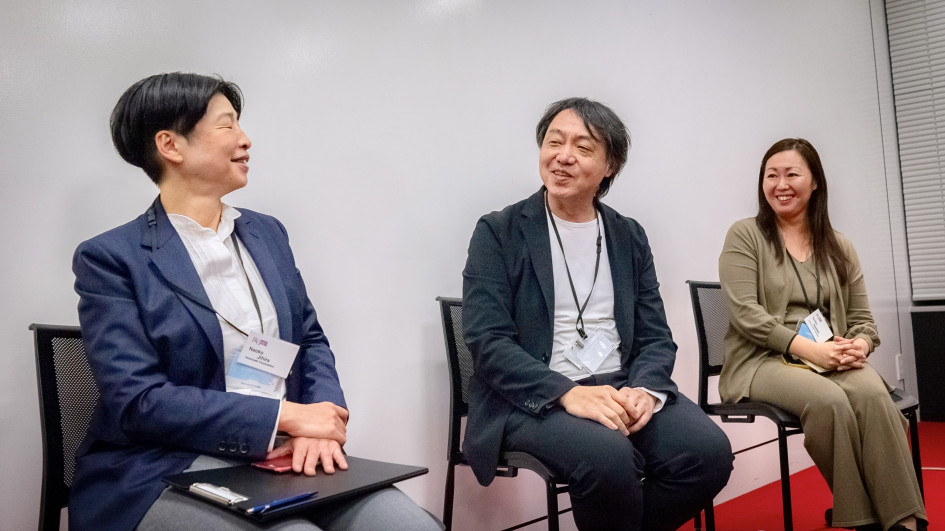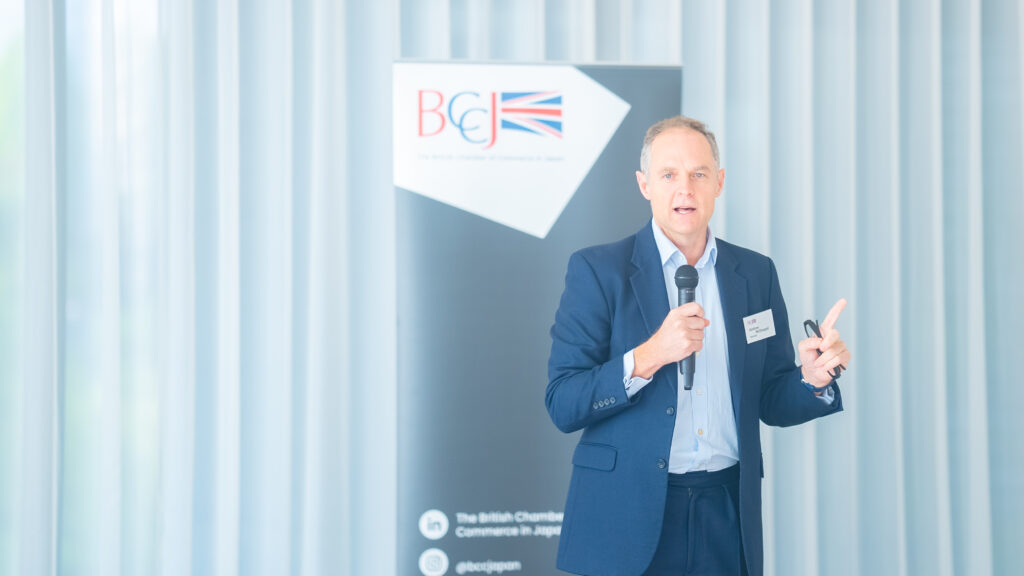Partnerships for problem-solving
Our panelists overwhelmingly saw the positive impact of partnerships as a means to overcome the tremendous challenges experienced across industries and global markets today. These partnerships are delivering new innovations and providing brands with future-proof strategies that will maintain their relevance for years to come.
At Suntory, Yoji told us that the firm is pushing hard on a horizontal approach to PET bottle recycling. By partnering with local governments and communities, Suntory is visibly participating at the end-user level, rather than just leaving recycling programmes up to the municipal services providers. This pushes Suntory beyond the scope of its usual beverage production activities and gives the firm a holistic view on where it is having an impact on the environment and local communities, and where it can do more.
There is a similar approach playing out at Unilever Japan says Yuriko Iwasaki. Partnerships not just between companies, but with educational institutions and the United Nations, now sit at the center of corporate cultural development at the firm.
Isuzu Motors is taking a bolder stance when it comes to partnerships Konstantin Kriegelsteiner tells us. The automaker is buddying up with competitors on initiatives that go way beyond commercial vehicles and accelerate the firm’s goals for carbon neutrality. Whilst not giving away too many details, Konstantin says Isuzu is embarking on a reform of mobility systems in Japan that have never been seen before, with partnerships playing a key role in defining who leads the industry.
Naoko Jihira at Hoshizaki highlighted the firm’s partnership with an AI robotics startup to uncover new needs for its users. She reflects that change is not just driven by society itself, or by government, but by the large corporates and organisations that are bringing new innovations to market. But where are these innovations coming from? In many cases they are coming from the smaller firms that have developed unique new technologies that now need the support to scale. Naoko believes that partnerships can improve the quality of products and services, and play a critical role in revitalising Japan’s economy.

Economic imperative and sustainability is a balancing act
As climate disasters grow both in terms of size and frequency, environments continue to degrade and the sensitive ecosystems on which the health and welfare of people and all species depend decline, corporate behaviour and sustainability actions and policies play a critical role. But many business leaders continue to struggle with balancing this role with the need to be successful and competitive. Can a focus on sustainability, healthy societies, and positive climate impact, contribute to long-term business growth?
At Unilever Japan, Yuriko tells us that sustainability has been integral to corporate strategy since 2010, providing tools to enhance business performance and acting as a lens for corporate social responsibility at the firm. With huge supply chains and networks, Unilever is working with suppliers, distributors, packaging firms and others, to work towards the company’s net zero target. And when it comes to diversity and inclusion, Unilever is striving to remove gender bias, a big issue in Japan, in recruitment. Removing first names and photos – mandatory in traditional job applications in Japan – from employment applications has played a key role in this task.
Given Suntory’s connection to natural resources, responsibility and social contributions have been integral to the brand since its founding, says Yoji Minakuchi. It currently has legally binding contracts in place for the next 50 – 100 years to protect water sources in Japan and conserve forests. These activities are not necessarily visible to the general public though and therefore do not boost the company’s external reputation. Yoji sees these as activities that represent the deep acknowledgment of responsibility at Suntory and are activities that are essential to the long-term survival of the business. Most importantly, while Yoji feels positive about companies across Japan actively embracing sustainability, it is crucial for sustainability initiatives not to be seen only as duty and exams to pass, but with interest and care that enrich employees and company culture.
Konstantin Kriegelsteiner at Isuzu Motors reflects that in recent years, consumers have become more amiable to buying an electric vehicle, even if it might be a little more expensive than a traditional petrol / gas vehicle. For Konstantin, this trend will only continue, with more and more customers seeing a product such as an EV truck, as an investment in the future.
And at Hoshizaki, a deep integration with regulation at the local and national level in Japan means the firm is honing and refining its product capabilities to maximise environmentally beneficial impacts. Naoko Jihira seems these innovations as a core route to champion Hoshizaki’s unique proposition and build its competitiveness in Japan and around the world.














